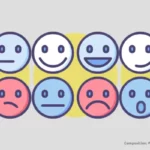
Who are you?
To this seemingly simple question, the majority respond with a list of roles.
I’m a mother. A lawyer. An English. An athlete…
Those roles are nothing more than a series of behavior patterns that society has defined for different environments and situations. However, although roles are basically a set of socially shared expectations and rules of behavior, there comes a point where we incorporate them as part of our “self”.
When we have played a role for a long time, we identify with that role. For this reason, many people do not feel the role of parents or professionals as something external, but they incorporate it into their personality.
However, since many of the roles we play on a daily basis are only roles assigned by society, sooner or later there comes a point in life when that kind of “contract” is broken. Then we can grieve for the loss of that role.
We are the roles we play
In society we generally relate through different roles, from parents-children to teachers-students or doctor-patient. Roles facilitate that interaction. They convey to us quite clearly how we are expected to behave in those interactions and create a status that refers to our exact position in that social structure. The roles are, therefore, social compasses.
The first roles we assume in life are generated within the family. Little by little, as we interact with other people during the socialization process, we acquire new roles and better understand the expectations, behaviors, and limits associated with them.
When we begin to discover and become aware of the expectations that the entire society directs towards us, we learn to play the roles corresponding to the different areas in which we operate. We learn to be children, students, friends, brothers… While this happens, our social identity is also being formed, which is closely linked to our “self”.
Although roles are fundamentally defined in terms of others’ expectations of our behaviors, attitudes, and even ways of thinking, that doesn’t mean they are entirely external. Normally we become the role we play. We do not limit ourselves to acting following the role that we have been assigned, but we feel as such.
This identification occurs, according to the psychologist George H. Mead, because since most of the roles have been assigned to us socially, the origin of the discovery of one’s own “self” overlaps with that of the discovery of society. That is to say, identity is not something abstract, but is built to a great extent through acts of social recognition.
Pain for losing a role
We normally associate grief with the loss of a loved one or a pet, but we can go through a similar process when a role is lost or taken away from us. In fact, the concept of grief refers to the phases we go through to adjust to a loss – of any kind.
For example, pain over job loss, whether due to layoff or retirement, can be particularly intense. Parents can also go through a similar period when their children leave home as their parental role begins to fade.
Obviously, the more we identify with a role, the more painful or even traumatic its loss will be. If people perceive themselves primarily through their professional facet and have built their identity around it, it is understandable that the loss of that role triggers a veritable emotional tsunami. It also happens with parents who have fully devoted themselves to raising their children, ignoring other facets of their lives, or with whom they have given themselves completely to a relationship without cultivating other interests.
When these people lose the role that gives meaning to their existence, they feel lost. It’s like the ground is being lifted from under their feet. They lose the compass that guided them because the behavior patterns they followed expire overnight.
As a result, they can feel that part of their identity has been stolen from them, so it is not unusual for them to begin to experience a great inner emptiness that can even lead to an existential crisis.
Dealing with losing a role without breaking down
Roles, like everything in life, come and go. They are not eternal. The most important thing to prevent being swept away by their loss is to avoid over-identifying with that role.
One technique to stop identifying with roles is to change our discourse. For example, instead of saying “I am a doctor” we could say “My name is Ann and I work as a doctor”. The difference is subtle, but important, because in this way we put ourselves at the center of our “self” instead of letting it articulate around a social role that can disappear.
This Psychological technique allows us to become aware that we are much more than the roles we play and those that have been assigned to us. It helps us expand our concept of ourselves while expanding our identity.
Another important aspect of dealing with the loss of a social role is to diversify our interests. The rule is: the more roles we have, the less the loss of one of them will affect us. We can imagine our identity as a building. If you have few pillars/roles, it will collapse if one of them stops supporting the structure, but if there are many, the loss of one pillar/role won’t cause as much havoc.
To expand our social roles and our own identity, a good starting point is to look for new interests. In this way, Ann will stop being just a doctor and will also begin to be a painter, an athlete, a writer, an activist… The limits are set by you and your desire to explore new facets of your identity.



